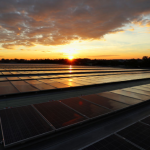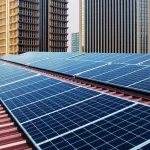
Congress recently passed a solar investment tax credit (ITC) extension in the latest COVID-19 relief package. Within a $900 billion coronavirus relief package, congressional leaders approved a $35 billion spending package for renewable energy research and development programs. Under this spending bill, the solar tax credit incentive program has been approved for a two-year extension. This means property owners can continue to save on their installation costs. As a homeowner in the market for solar, you need to know how the federal tax credit extension impacts the cost of your solar installation Passaic County NJ and other areas. Of course, you also need to know how to access your savings, so your rooftop system can pay for itself. In this post, you’ll learn how the solar ITC extension relief package impacts your installation and what you need to know to reduce your costs.
What Is The Solar Investment Tax Credit?
The federal solar investment tax credit is a popular incentive program in the United States to increase your solar savings. Originally, the solar ITC was passed in the Energy Policy of 2005, and it was supposed to expire in 2007. Due to the popularity of the program and how it increased the market for solar, Congress has extended the program multiple times. As of 2020, property owners enrolled in the incentive tax credit program can deduce 26% of the cost of their system from their taxes. Notably, this means that solar customer lower their total installation costs by 26%. Certainly, the tax credit plan is a great way to lower the costs of switching to solar.
What Is The New Extension Policy?
Under the new solar credit extension policy, you can continue to reap lower installation costs for an additional two years. Before Congress passed the latest bill, the federal investment tax was set to drop to 22% in 2021. By 2022, these deductions were going to drop by 10% for commercial systems and completely disappear for residential rooftop systems. Undoubtedly, property owners would have lost significant savings, drastically affecting the solar market. With the new tax credit extension, the ITC will remain at 26% for residential projects beginning in 2021 and 2022. In 2023, the relief program is set to drop to 22%. By 2024, residential projects will no longer have access to the incentive program. Therefore, the next two years may be the best time to install your solar panel system to get the most savings.
How Does This Lower My Installation Costs?
Undoubtedly, this solar ITC tax incentive extension can greatly lower your installation costs. With the 26% deduction, homeowners who install rooftop solar power systems can save on their net installation cost. For example, if your system costs $15,000 and you receive a $3,000 state rebate, your total upfront expense drops to $12,000. From there, you can multiply 26% by $12,000 for $3,120 solar tax credit savings. This means your installation cost can potentially drop from $15,000 to $8,880 because the ITC savings are typically applied to your net installation cost. Of course, your savings value changes with your installation cost. On average, solar customers can save over $4,000 with this incentive program. You can also use a solar savings calculator New York or for your state to estimate your costs. Definitely, you can receive lower installation costs with Congress’s ITC extension for solar.
How Do I Qualify For Savings?
To qualify for solar tax savings, you need to meet several criteria. First, you need to make sure your system is installed before 2023 to access the full 26% deduction. In addition, you need to be a property owner. This is essential because renters are not eligible for the program. Moreover, to claim your federal solar tax benefits, you also need to own your solar panels. It can be more difficult to directly claim your savings when you are leasing your solar system from your installer. Of course, you also need to pay enough federal taxes to qualify for the 26% tax credit. This is because it is a credit program, not a rebate. Certainly, you need to meet these criteria to qualify for your federal solar investment tax credit extension.
How Do I Receive My Tax Credit?
Finally, it’s important to fill out the proper paperwork to receive your solar ITC extension and access your savings. Once you’ve determined your eligibility, you will need to fill out IRS Forms 5695 and 1040 when you file your income taxes. Fortunately, these forms include step-by-step instructions for simple completion. Of course, your solar contractors central Jersey and other regions can assist you with filling out your forms as well. Typically, they have experience to ensure that you can get your savings. To receive your tax credit savings, it’s essential to fill out your paperwork properly.
Congress recently passed a solar investment tax credit (ITC) extension in the latest COVID-19 relief package. The solar tax investment credit incentive program to lower your installation costs. With this credit extension, you can save 26% on your installation costs on residential systems installed before 2023. On average, home owners can save over $4,000 with this program, so this extension has huge impacts for residents in the solar market. Of course, there are certain qualifications that you need to meet. You also need to fill out IRS forms receive your credit. Consider these points to learn about the solar investment tax credit (ITC) extension in the latest COVID-19 relief package.




